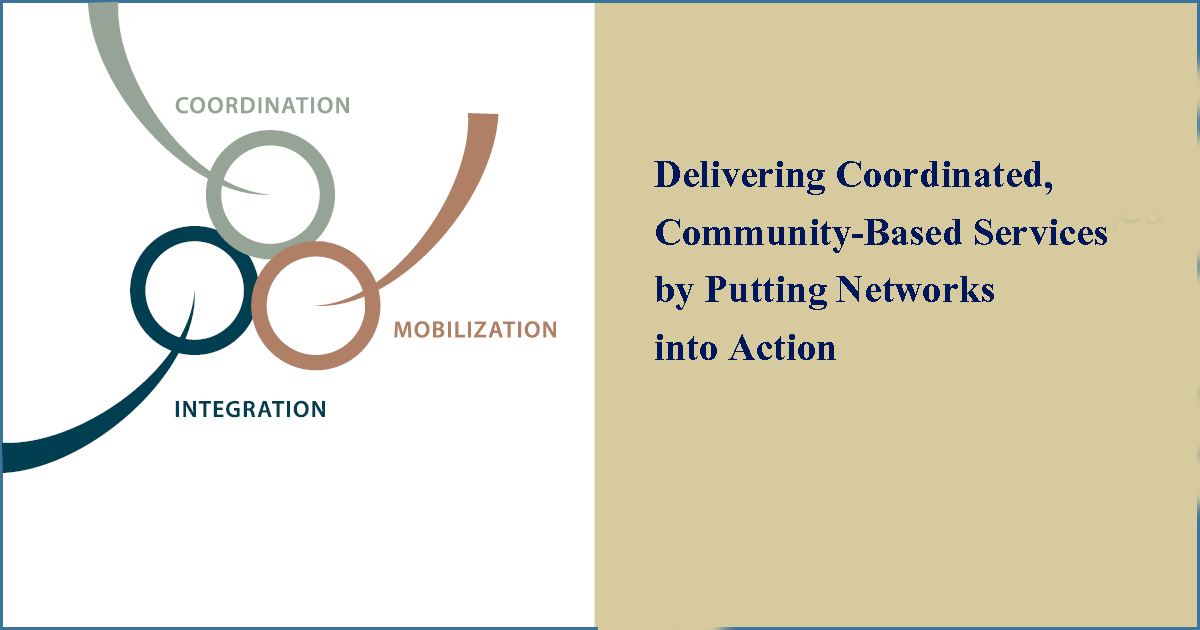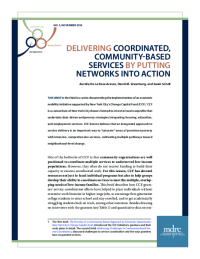Delivering Coordinated, Community-Based Services by Putting Networks into Action

This brief is the third in a series documenting the implementation of an economic mobility initiative supported by New York City’s Change Capital Fund (CCF). CCF is a consortium of New York City donors formed to invest in local nonprofits that undertake data-driven antipoverty strategies integrating housing, education, and employment services. CCF donors believe that an integrated approach to service delivery is an important way to “saturate” areas of persistent poverty with intensive, comprehensive services, cultivating multiple pathways toward neighborhood-level change.
One of the bedrocks of CCF is that community organizations are well positioned to coordinate multiple services to underserved low-income populations. However, they often do not receive funding to build their capacity to execute coordinated work. For this reason, CCF has devoted resources not just to fund individual programs but also to help groups develop their ability to coordinate services to meet the multiple, overlapping needs of low-income families. This brief describes how CCF grantees’ service coordination efforts have helped to place individuals without extensive work histories in higher-wage jobs, to encourage first-generation college students to enter school and stay enrolled, and to get academically struggling students back on track, among other outcomes. Besides drawing on interviews with the grantees — St. Nicks Alliance, the Fifth Avenue Committee, New Settlement Apartments, and Cypress Hill Local Development Corporation — and quantitative data on outcomes from the grantees’ reports to the funders, this brief uses an analytic tool called social network analysis whose basic unit is the relation, rather than an individual or organization.






